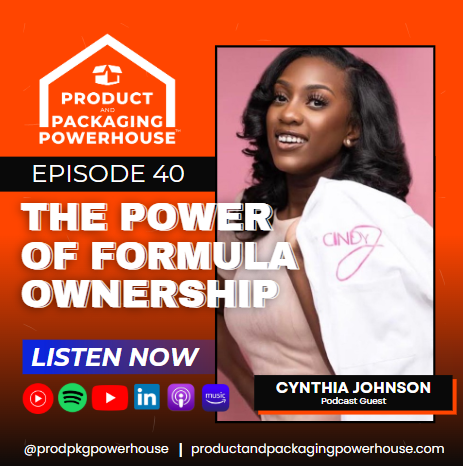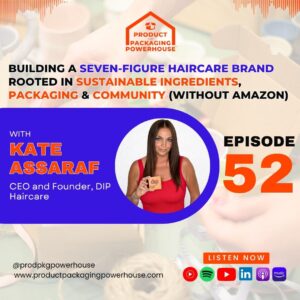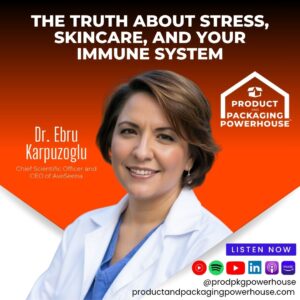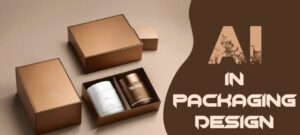Introduction:
When you pick up a bottle of shampoo, serum, or moisturizer, do you ever wonder: Who made this? What’s actually in it? And who owns the formula behind it?
In a powerful episode of The Product & Packaging Powerhouse podcast, host Megan Young Gamble sits down with Cynthia Johnson, cosmetic chemist, founder and CEO of Cindy J Cosmetic Labs, LLC, to pull back the curtain on the world of beauty product development.
Whether you’re a beauty brand founder, a curious consumer, or just someone fascinated by how everyday products are created, this episode offers real, behind-the-scenes knowledge about what it takes to formulate, test, and launch products that are safe, effective, and built to last.
Here are five fascinating insights from the episode that everyone should know.
1. You Must Own Your Formula From the Start
Cynthia explains that many products on the shelves are made by labs or manufacturers who own the formula, not the brand. That means even if a product carries a brand’s name, the formula behind it might not belong to them.
This matters not just for business reasons, but also for transparency, safety, and control. When a brand owns its formula, it can choose to improve, tweak, or even disclose more about what’s inside. When it doesn’t, it’s limited in what it can do, or even say.
Why it matters to you: Next time you buy a “clean” or “natural” product, ask yourself, can this brand back up those claims? Do they know exactly what’s in their product?
2. Testing Is a Non-Negotiable Step
You may think that if your product looks good and smells great, it’s ready to sell. Not quite. Cynthia breaks down the essential role of testing in product development, especially for new brands.
Key types of testing include:
- Stability Testing: Ensures the product holds up over time and under different conditions
- Consumer Evaluation: Determines whether your target audience actually likes the product
- Preservative Efficacy Testing: Confirms your product won’t grow bacteria or mold
Why it matters to you: When you invest in a beauty product, you’re trusting that it’s safe, stable, and effective. Brands that take testing seriously are showing that they care about more than a pretty label.
3. Creating a Product Isn’t Fast And That’s a Good Thing
Cynthia reveals that custom formulations (i.e., products made from scratch for a specific brand) can take 6 to 12 months to develop. That’s because they go through rigorous steps like R&D, consumer feedback, and multiple rounds of testing.
On the flip side, some brands choose private label products, pre-made formulas they can brand and sell which can be launched faster but may be less unique or tailored.
Why it matters to you: If you’re a consumer, this timeline explains why thoughtfully made products cost more or take longer to launch. If you’re in business, it reminds you not to rush what should be a quality-first process.
4. Small Batches Can Be Smart Business (and Good for the Planet)
Not every brand starts by producing 10,000 units. Cynthia’s lab offers small-batch manufacturing, making 20, 50, or 100 units at a time, so brands can test their product with real people before committing to large-scale production.
This approach prevents waste, allows for tweaks based on feedback, and makes launching more accessible to smaller brands.
Why it matters to you: It’s a reminder that supporting indie or emerging brands is often supporting better business practices as less waste, more thoughtfulness, and more experimentation.
5. Sustainability Begins in the Lab, Not Just the Packaging
We often associate sustainable beauty with packaging, glass bottles, recyclable boxes, and refillable containers. But Cynthia emphasizes that sustainability starts in the lab, with how ingredients are processed and what kinds of formulas are developed.
For example, cold-process formulations use less energy than traditional heated methods. And biodegradable ingredients like jojoba beads are replacing microplastics that harm marine life.
If you care about sustainability, look deeper than the bottle. Ask how the product was made, not just how it looks on a shelf.
Conclusion
Launching a beauty brand involves so much more than picking a logo or choosing a fragrance. As Cynthia Johnson makes clear, the foundation of a successful brand is strategy, ownership, and intention.
From understanding your formulation rights to building in time for testing and small-batch production, this episode is packed with insights that can save new founders time, money, and stress.
If you’re serious about creating a beauty product that’s built to last, listen to the full episode here, and consider working with formulation experts like Cindy J Labs who prioritize education, transparency, and founder empowerment.
🎧 Listen to “The Power of Formula Ownership” on The Product & Packaging Powerhouse Podcast here

Cynthia’s Bio – Cynthia Johnson is the Founder and CEO of Cindy J Cosmetic Labs, LLC, an innovation-focused research and development laboratory specializing in cosmetic and personal care product formulations. With years of experience in the cosmetic industry, Cynthia combines her passion for science, sustainability, and innovation to create environmentally safe products that promote human health. A Green Star Award Winner and advocate for young women in STEM, Cynthia’s work emphasizes both scientific excellence and social impact in the world of cosmetics.
- LinkedIn: https://www.linkedin.com/in/cynthiajohnson0512/
- Email Address: cjohnson@cindyjlabs.com
- Company Website: https://cindyjlabs.com/
- Cosmetic concept planner : https://thecosmeticconceptllc.com/products/the-planner-for-product-development
- The Cindy J Expo : https://cindyjlabs.com/cindy-j-expo/
- Black Women in Cosmetic Chemistry NGO : https://www.bwiccinc.org/






